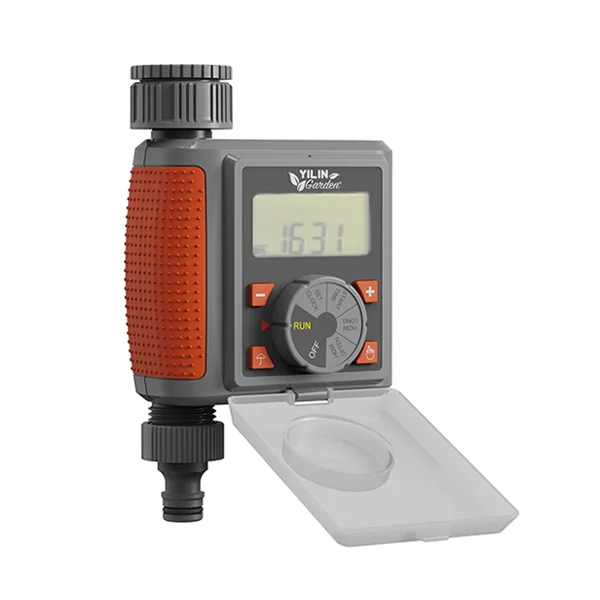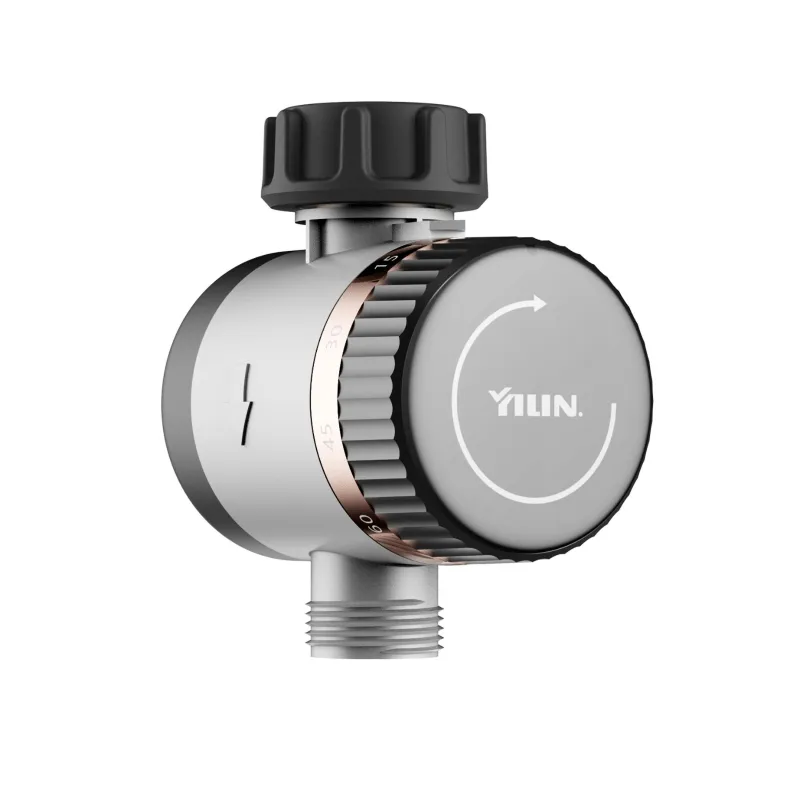Understanding the Impact of Automated Irrigation Solutions
Modern gardening and lawn maintenance have evolved significantly with the introduction of smart irrigation technologies. At the forefront of these innovations stands the water timer, a revolutionary device that has transformed how we approach watering schedules and garden maintenance. These intelligent devices serve as the bridge between traditional manual watering methods and sophisticated automation, offering unprecedented control over water usage while dramatically reducing the time and effort required for proper plant care.
Water timers have become increasingly popular among both homeowners and professional landscapers, proving their worth through consistent, reliable performance and remarkable water conservation capabilities. By automating the watering process, these devices eliminate the need for constant manual oversight, ensuring plants receive precisely the right amount of water at optimal times throughout the day or week.
The Technology Behind Water Timer Systems
Core Components and Functionality
A water timer consists of several essential components working in harmony to deliver precise irrigation control. The main unit typically features a digital interface or programming buttons, allowing users to input their desired watering schedule. Inside, a microprocessor manages the timing mechanisms, while solenoid valves control water flow. This sophisticated yet user-friendly design ensures reliable operation season after season.
Modern water timers often incorporate additional sensors that enhance their functionality. These may include rain sensors that prevent unnecessary watering during rainfall, moisture sensors that measure soil conditions, and smart connectivity features that enable remote control through mobile applications. The integration of these technologies results in a more responsive and efficient irrigation system.
Programming Options and Customization
Today's water timers offer extensive programming flexibility to accommodate various watering needs. Users can set multiple start times throughout the day, adjust watering duration for different zones, and create custom schedules for different days of the week. Some advanced models even allow for seasonal adjustments, automatically modifying watering durations based on weather patterns and changing daylight hours.
The ability to fine-tune these settings ensures optimal water usage for different types of plants, soil conditions, and climate zones. This level of customization not only promotes healthier plant growth but also contributes to significant water conservation efforts.

Maximizing Efficiency Through Automated Irrigation
Time Management Benefits
One of the most significant advantages of using a water timer is the considerable time savings it provides. Instead of spending hours manually watering gardens or constantly adjusting sprinkler positions, property owners can rely on automated systems to handle these tasks efficiently. This automation allows individuals to focus on other important aspects of garden maintenance or simply enjoy more leisure time.
Professional landscapers and maintenance crews particularly benefit from water timers, as they can manage multiple properties more effectively. The ability to set and forget watering schedules while maintaining optimal plant care has revolutionized the landscape maintenance industry, leading to improved service delivery and customer satisfaction.
Water Conservation and Cost Savings
Water timers play a crucial role in promoting sustainable water usage. By delivering precise amounts of water at predetermined times, these devices eliminate the risk of overwatering and reduce water waste. Studies have shown that properly programmed irrigation systems can reduce water consumption by up to 30% compared to manual watering methods.
The financial benefits of this improved efficiency are substantial. Reduced water consumption leads to lower utility bills, while the prevention of overwatering helps avoid plant diseases and replacement costs. Additionally, many regions offer rebates or incentives for installing water-efficient irrigation systems, making water timers an even more attractive investment.
Installation and Maintenance Considerations
Setup Process and Best Practices
Installing a water timer typically requires minimal technical expertise, though attention to detail is crucial for optimal performance. The process begins with selecting an appropriate location near a water source, ensuring the timer is protected from extreme weather conditions. Connection to existing irrigation systems or hoses should be secure and leak-free, while programming should be done thoughtfully to match local weather patterns and plant needs.
For more complex installations involving multiple zones or special features, consulting with irrigation professionals can help ensure proper setup and maximum efficiency. They can provide valuable insights into zone planning, water pressure considerations, and optimal programming strategies.
Long-term Care and Troubleshooting
Regular maintenance of water timers is essential for continued reliable operation. This includes periodic cleaning of filters, checking for leaks, and verifying that all components are functioning correctly. Battery-operated models require regular power source checks, while hardwired systems should be inspected for electrical integrity.
Common issues such as irregular watering patterns or system failures can often be resolved through simple troubleshooting steps. Understanding these maintenance requirements and addressing problems promptly helps ensure consistent performance and extends the life of the irrigation system.
Frequently Asked Questions
How much can I save on water bills with a water timer?
Water timer users typically report savings between 20-40% on their water bills, depending on previous watering habits and local water rates. These savings can be even more significant when combined with smart sensors and efficient sprinkler heads.
What happens to my water timer settings during power outages?
Most modern water timers feature non-volatile memory that retains programmed settings even during power outages. Battery-powered models continue to track time and maintain schedules, while hardwired systems usually include backup batteries for this purpose.
Can water timers be used with all types of irrigation systems?
Water timers are compatible with most irrigation systems, including drip irrigation, soaker hoses, and traditional sprinklers. However, it's important to verify that your chosen timer matches your system's water pressure requirements and connection specifications.


